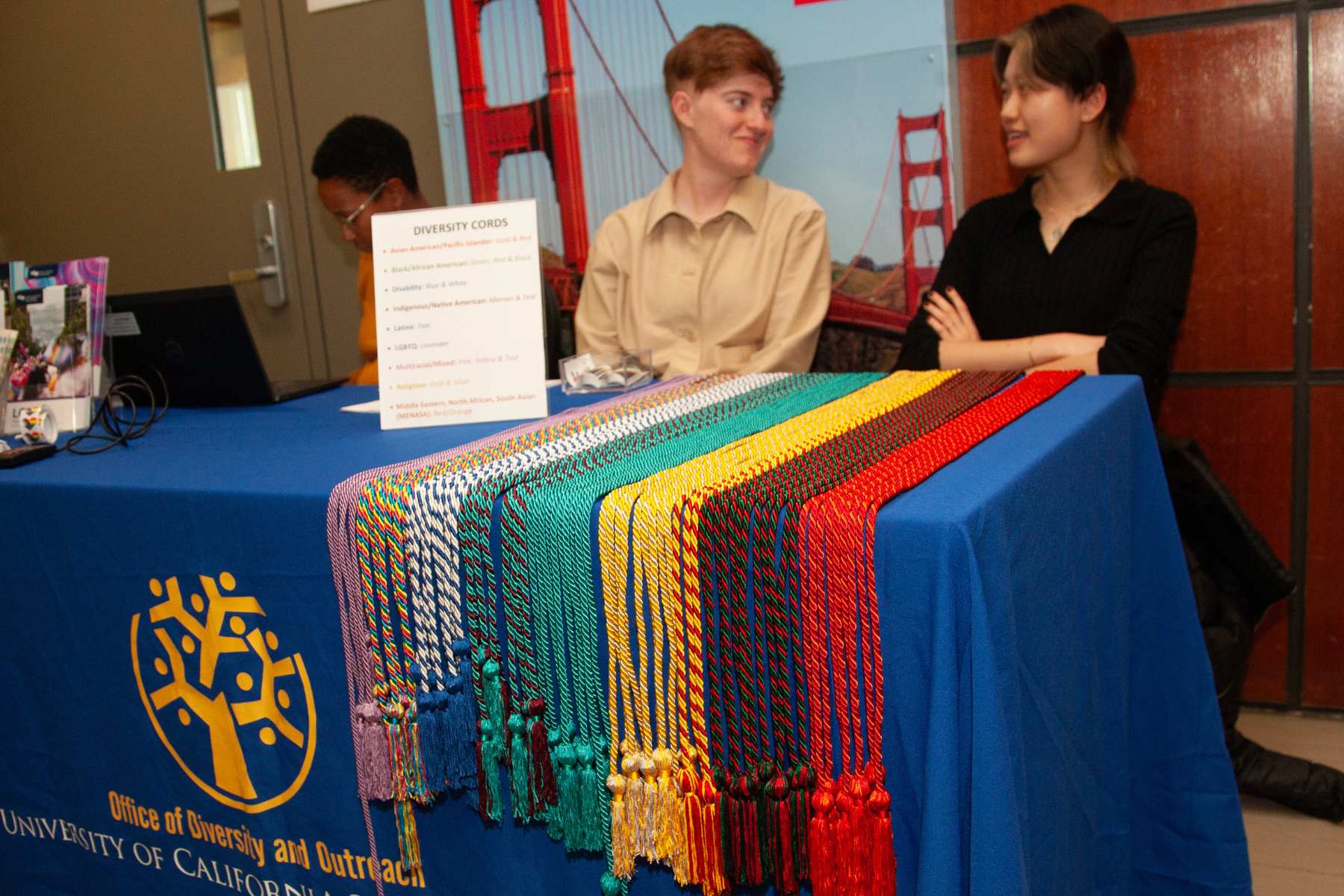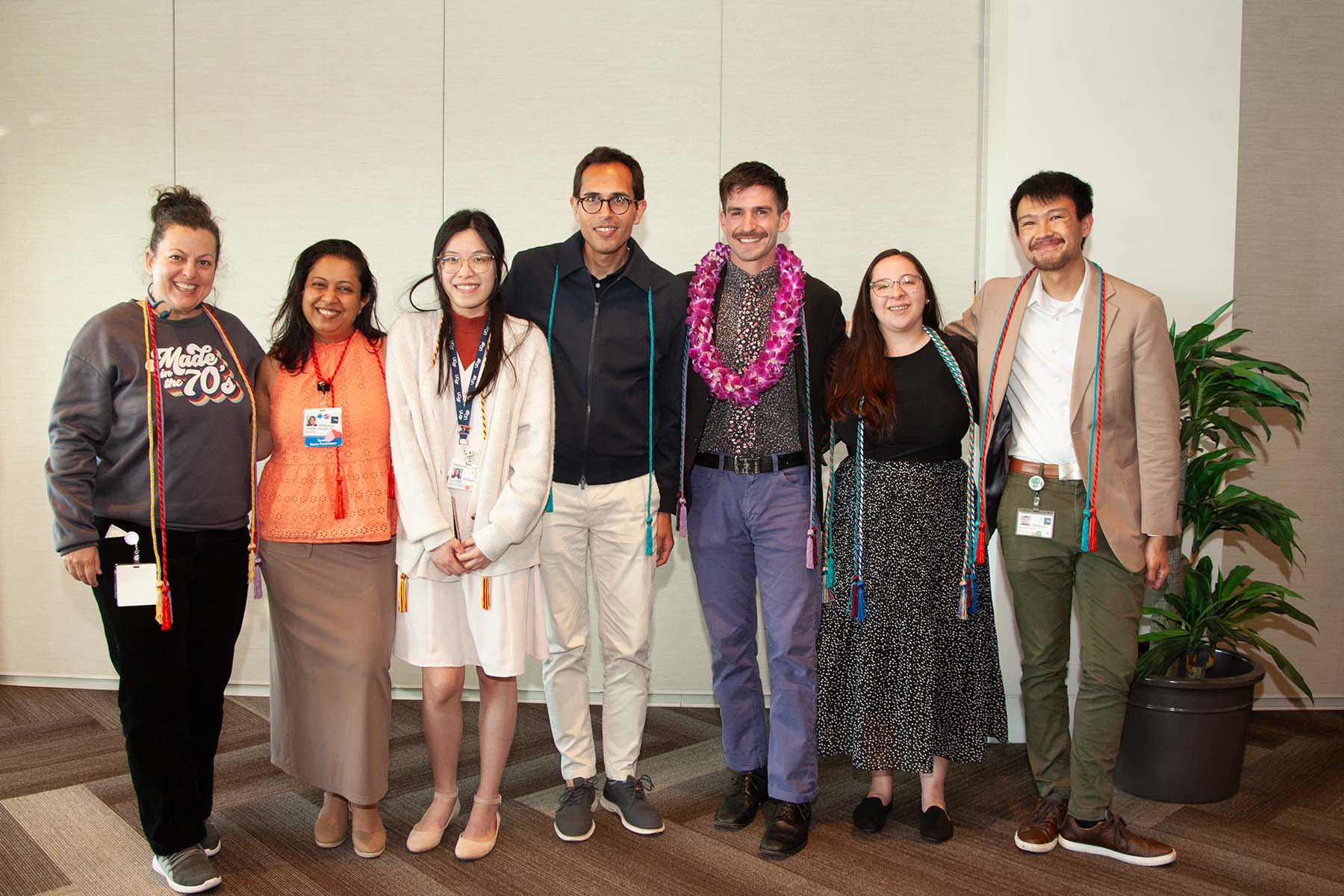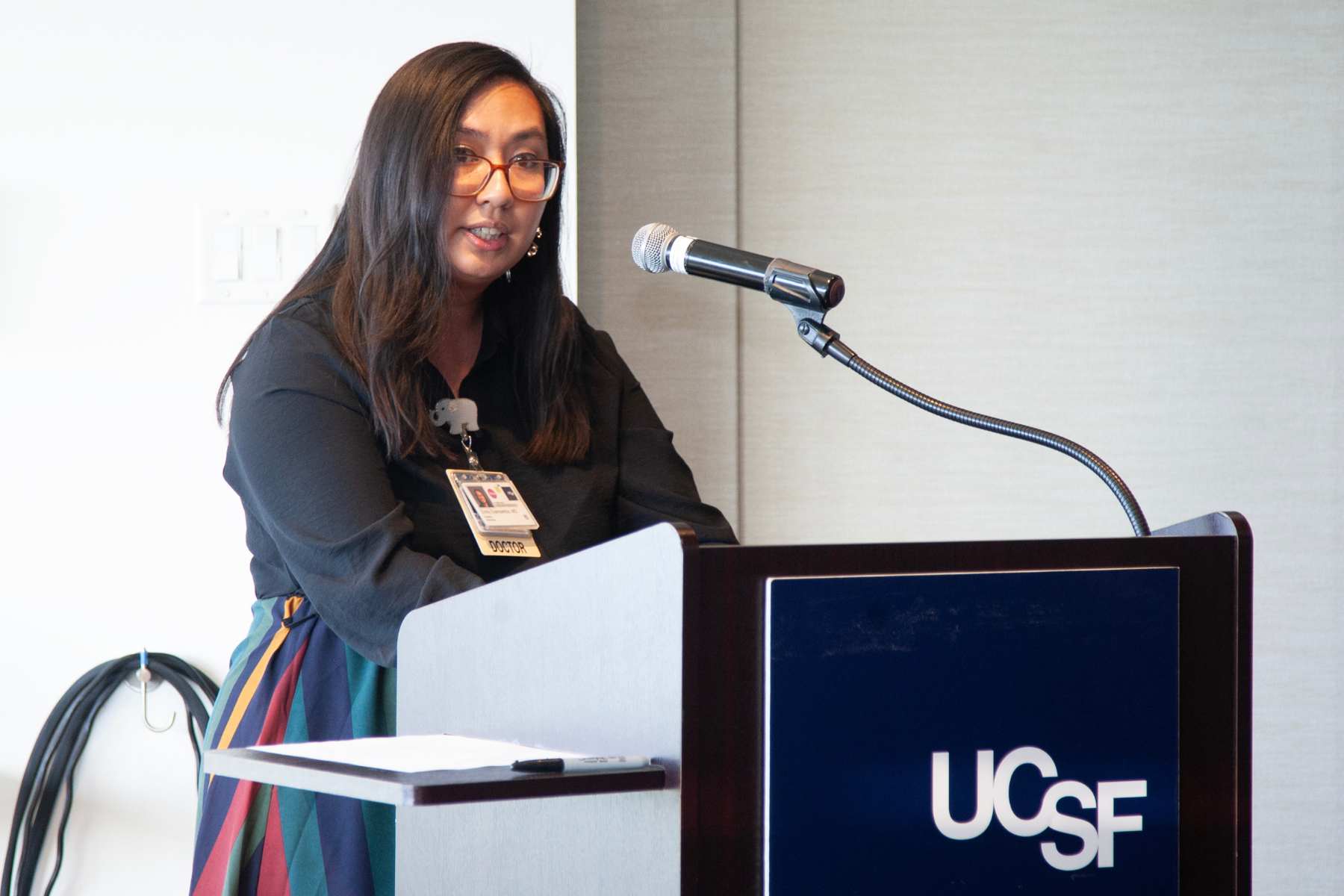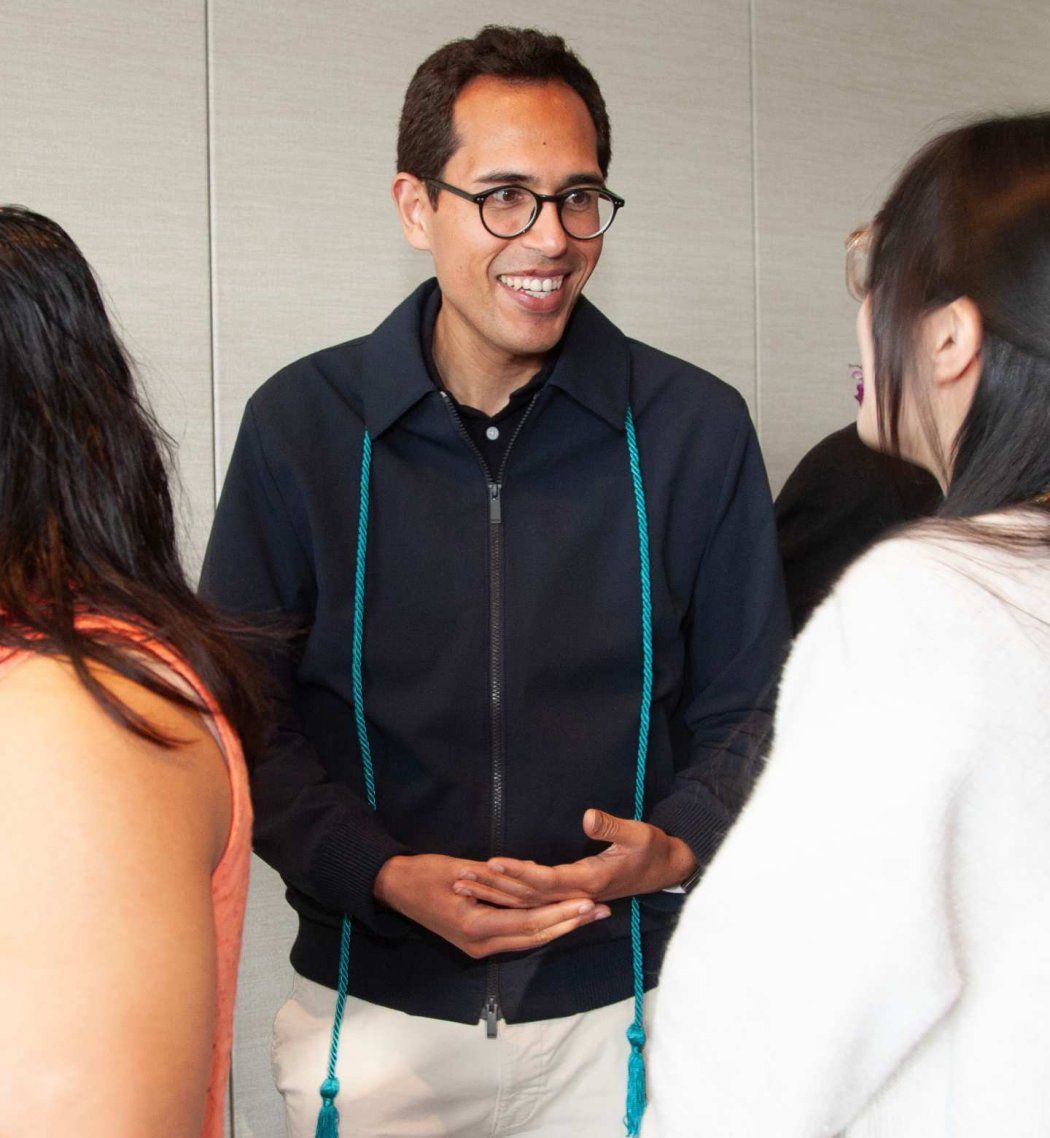Graduating from UC San Francisco is the end of one rewarding journey and the start of another.
For the new alumni recently honored at UCSF Diversity Graduation, it not only signals the beginning of a career in health care but also an opportunity to represent and serve traditionally marginalized groups of people. People just like them.
“We come from different places,” said Sangeeta Agarawal, NP, RN, MS. “We may have very different cultural backgrounds and family values but there’s a place for everyone and everything.” The registered nurse and integrated medicine practitioner is a 2024 graduate of the Adult Gerontology Primary Care Nurse Practitioner program in the UCSF School of Nursing, specializing in occupational and environmental health nursing.
She was one of several 2024 graduates at the annual event hosted by the UCSF Office of Diversity and Outreach celebrating Black, Latinx, Indigenous and other people of color, disabled, LGBTQ+ graduates and religious minorities from UCSF professional schools and Graduate Division. The celebratory event, held in the Millberry Union Conference Center at UCSF Parnassus Heights, included inspiring remarks from Renee Navarro, MD, PharmD, UCSF vice chancellor of diversity and outreach, Eddy Ruiz, PhD, UCSF assistant vice chancellor of climate and belonging, and many others.

“We’re so proud of your accomplishments at UCSF,” Navarro told the graduates. “UCSF is an amazing place because of its people and our students are a big part of what makes this University special. Be an ally and empower others to do likewise.”
Diverse paths converge at UCSF
Like many of the graduates honored, Agarawal’s path to UCSF wasn’t always clear.
“As a child, I didn’t really have many resources or support,” Agarawal said of her early life in northern India. “I grew up on the streets and decided that school was the way to go. I decided to enroll myself in school. I studied by street lights. I was always passionate about health care because I had seen my great grandfather when I was very young providing health care to the community.”
Not having access to steady food, housing and health care during her childhood motivated Agarawal to focus on academics throughout much of her life.
“Coming from that background, having a place where I could design the future and have control over my destiny about what I want to be was really important,” she said. “At the same time, as I grew and matured, I also wanted to feel connected to my tradition and my roots and the good things that I learned.”
Having a place where I could design the future and have control over my destiny about what I want to be was really important.”
Agarawal gives back as the diversity, inclusion and outreach representative in the UCSF Associated Students of the School of Nursing.
Already a computer engineer with a focus in AI and mobile computing when she arrived on campus, Agarawal plans to continue at UCSF in pursuit of her PhD degree.
“The world is an oyster in terms of what I’m going do with all of this,” she laughed.
Marcos Armendáriz, MD, started on his path to UCSF in northern Mexico. He moved to a suburb outside El Paso, Texas in southern New Mexico when he was three, wearing honorary teal cords at Diversity Graduation to mark his Latinx heritage.
He’ll continue to honor those roots as a graduate of the UCSF School of Medicine.
“Being someone who was born and raised along the border, I’m very dedicated to working with immigrants (and) global health domestically and internationally,” he said. “That’s how I feel my career is going to develop. I was a first-generation immigrant. I feel very connected, compelled and am feeling that responsibility to give back to that community in becoming a physician who can understand their lived experiences and help effectively expand access to health care in those areas.”
Others at Diversity Graduation wore honorary cords to represent their backgrounds, including those of Asian American and Pacific Islander (gold and red), Black (green, red and black), and Middle Eastern, North African and South African (red and orange) descent, and disabled (blue and white) and LGBTQ (lavender) graduates.
After UCSF, Armendáriz will move to Houston, Texas to start his residency in internal medicine and pediatrics at Baylor College of Medicine.
But he’ll always look back on his time in San Francisco fondly.
“As I went through my UCSF education, I was happy and surprised by the amount of diversity that is celebrated every day here at UCSF,” Armendáriz added. “I felt very comfortable at UCSF being myself.”

‘We’ve come so far’
It’s the fact these graduates were themselves that helped them stand out.
“There’s such important student work going on even before they graduate from our institution,” said Wendy Tobias, EdD, CRC, LPCC, UCSF chief accessibility and inclusion officer. “It highlights necessary work around equity, social justice and inclusion. Importantly, the UCSF Office of Diversity and Outreach ensures all areas of diversity are represented and included in our awards.”
Those Diversity Graduation Awards recognize graduating learners for their sustained dedication to fostering diversity, equity and inclusion within the UCSF community.
The face of medicine and health care is changing. By adding these voices we can tackle challenges for minoritized groups and disparities in health care.”
Kyle Lakatos, MD, was recipient of the Multicultural Resource Center Social Justice and Activism Award. The Disability Resource Center Leadership Award went to Olivia Moon Leventhal, presented by Tobias.
Emily Eijansantos, MD, who won last year’s Disability Resource Center Leadership Award, was an alumni representative at the ceremony.
“It wasn’t that long ago that you had to look a certain way to be a qualified doctor,” Eijansantos said. “The face of medicine and health care is changing. By adding these voices we can tackle challenges for minoritized groups and disparities in health care.”
Eijansantos, a 2023 graduate of the UCSF School of Medicine, is finishing her first year of residency in the UCSF Department of Neurology and worked with Leventhal through the Disability Advocacy and Support Alliance, student-run interprofessional group.
“It’s really important to have moments like these where we reflect on the past and what we’ve accomplished,” she said. “There’s so much work to be done. As a doctor now, I see a lot of the consequences of disparate care due to bias and stigma. You can get really bogged down in how sad and depressing that can be, but then these moments make you think, ‘Oh my gosh. We’ve actually come so far.’”
More than 74% of learners in UCSF’s professional schools and Graduate Division identify as non-white – either non-resident, Black, Native American, Asian, Latinx, Pacific Islander and multiracial, according to statistics compiled by the UCSF Office of Diversity and Outreach.

